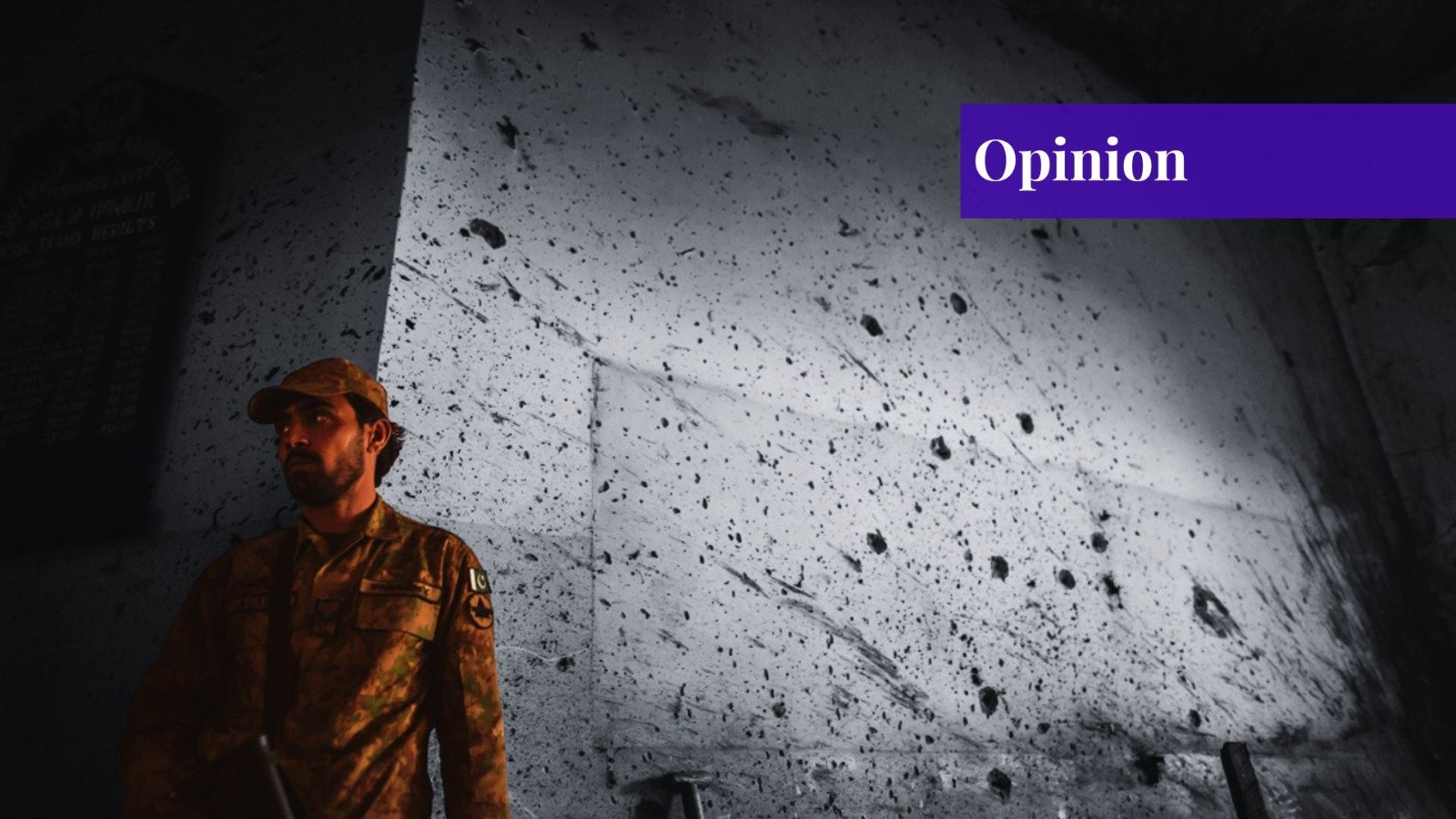The Terrorism Problem
Pakistan has been facing a surge in terrorist attacks in the country, especially in its provinces—KPK and Balochistan—after the withdrawal of US troops in August 2021. Once the frontline state against the war on terrorism and curbing the terrorist activities through a series of operations like Operation Rah-e-Nijat (2009), Operation Zarb-e-Azb (2004), and Operation Rad-ul-Fasaad (2017), Pakistan has now faced more attacks than the deadliest places like Syria and Afghanistan, ranking at number 2 in the Global Terrorism Index.
The hectic withdrawal of the US and its allied forces left behind billions of dollars of ammunition and equipment, which was divided as a victory prize (Maal-e-Ghanimat) among the Taliban and their affiliates, including TTP, IMU, Al-Qaeda, and the Hafiz Gul Bahadir group, and some percentage of these weapons were sold in black markets – from where BLA and BLF had acquired them – to meet governance expenditure. These weapons have been used by terrorists in attacks inside Pakistan and across the region. Afghanistan has become a haven for terrorist groups like ISKP, TTP, BLA, ETIM, etc., to train, plan, and conduct cross-border attacks in the region. The region needs a collective transnational counterterrorism policy to support its peaceful economic development.
Terror Attacks in Pakistan
Despite the promises made by the Taliban in the Doha Accord 2020 that they would not let Afghanistan’s land be used against them by terrorists, they now do not seem interested in keeping their promises. Pakistan has been attacked ferociously by TTP, ISKP, BLA, and BLF post US withdrawal. TTP has formed alliances with other factions, such as the Hafiz Gul Bahadur group and Lashkar-e-Jhangvi. Pakistan has experienced 521 attacks in 2024, an increase of 70% from last year, claiming 852 lives and injuring more than 1,000 people.
Out of 521 attacks, 335 were conducted by religiously inspired militant groups, including Tahreek-e-Taliban, ISKP, Lashkar-e-Islam, and the Hafiz Gul Bahadir group. Nationalist insurgent groups, primarily Baloch, were responsible for 175 attacks, claiming 268 lives and injuring 432 individuals. In 2025, BLA hijacked the Jaffer Express, which was going from Quetta to Peshawar, and 400 people were taken hostage. 21 people and 4 paramilitary soldiers were killed in this incident. These attacks were planned and coordinated from Afghan soil.
The Islamic State of Khorasan Province has been active throughout the region, conducting high-profile attacks to firm its presence in the region. Kerman blasts in Iran, the Crocus City Hall attack in Russia, the Santa Maria Italian Church in Istanbul, the blast in the election relay of the JUI-F, and inside Afghanistan. According to the International Centre of Counter Terrorism, ISKP has an estimated 4,000-6,000 persons and family members and has emerged as one of the most lethal groups in the region.
The East Turkmenistan Islamic Movement (ETIM) is another major group present in Afghanistan and has been a long-time ally of the Taliban, supporting the Taliban through military and economic means in the war against the USA. ETIM has targeted the Chinese citizens and projects inside Afghanistan and Pakistan. The Taliban, under the Chinese influence, acted against them and, in some cases, relocated from their strong foothold in Badakhshan. This led ETIM fighters to approach ISKP.
ISKP, through its extensive propaganda machine—the most active and sophisticated social media network in militant groups—is recruiting fighters from Turkmenistan and Uzbekistan, publishing in Cyrillic script to show its targeted audience. Despite the Taliban operations to counter ISIS, it has shown a reverse cycle.
Countering Threats from Afghanistan
Pakistan has put a lot of effort into countering threats emerging from Afghan soil over the last four years. Pakistan, through diplomatic means including security personnel, Pashtun elders, and religious clerics, shows concern about TTP and other groups’ activities. In April 2025, the Afghan foreign minister gave assurance to the Pakistani deputy prime minister and foreign minister that they would not let Afghan soil be used against Pakistan. Recent talks held after the border clashes between the two neighbors have stalled due to a lack of commitment by TTA to act against the TTP militants or even not giving a religious decree in favor of Pakistan.
To counter threats emerging from Afghanistan, Pakistan needs a much broader approach, engaging the regional states for a common counterterrorism policy. Russia and China must play a big role due to their larger economic interests, such as the southern corridor, the proposed Russia-China oil pipeline, and the Belt and Road Initiative projects. Iran, Uzbekistan, and Tajikistan, as neighboring states of Afghanistan, can play a crucial role in countering the militancy in the region.
The transnational counterterrorism policy requires building a comprehensive ISR—intelligence, surveillance, and reconnaissance—to share real-time information with all regional states for counterterrorism operations. There is a need to enhance the counterterrorism capacity and capabilities of the region. All regional states should put pressure on TTA to take action against all militants operating from its soil without any discrimination. Trade, investment, aid, acceptance, and legitimization of the regime around the world can be conditioned by their actions against the militant groups.
To conclude, Pakistan now needs to think about working with the regional powers to find a solution to the problem and to enhance the realization of the danger posed by these terrorist groups to the regional economy and security.
If you want to submit your articles and/or research papers, please visit the Submissions page.
To stay updated with the latest jobs, CSS news, internships, scholarships, and current affairs articles, join our Community Forum!
The views and opinions expressed in this article/paper are the author’s own and do not necessarily reflect the editorial position of Paradigm Shift.
Fahad Hanif is currently pursuing his bachelor's in international relations at the International Islamic University, Islamabad.



